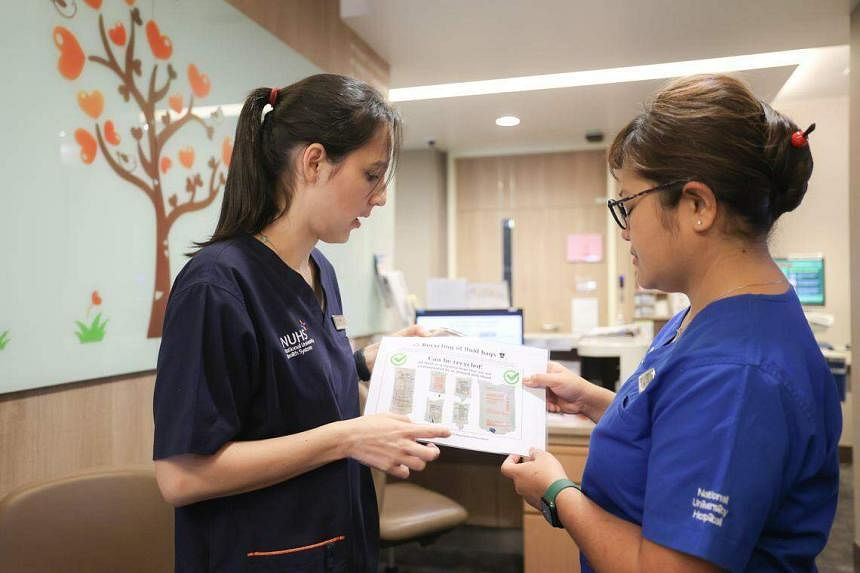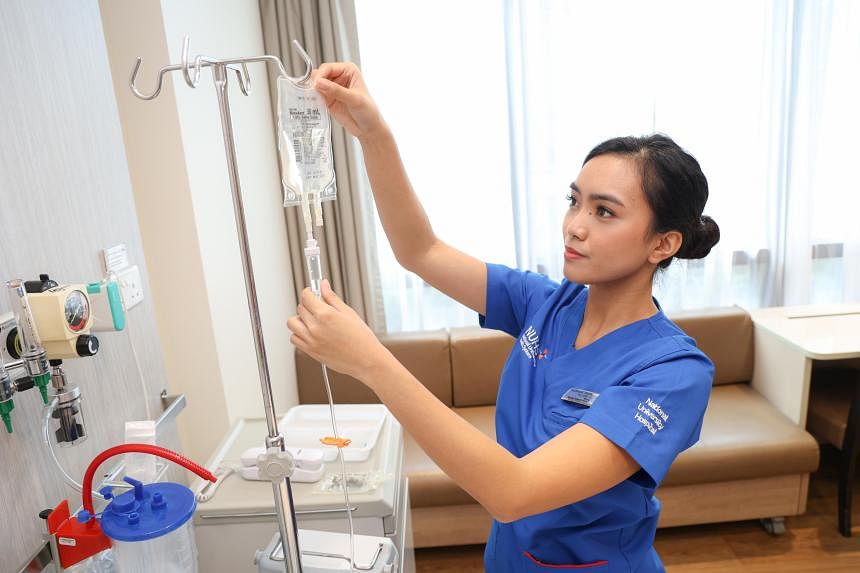SINGAPORE – While Dr Andrea Yap, a consultant in the Department of Anaesthesia at the National University Hospital (NUH), knew from her experience of working in hospitals in Australia that intravenous fluid bags could be recycled, no one in Singapore believed her.
She was determined to prove that it was possible to recycle the polyvinyl chloride (PVC) bags.
“It took me about a year, contacting different companies and sending samples to recyclers to assess,” said Dr Yap, who worked as an anaesthesia consultant in Australia before moving to NUH in 2018.
After many waste management and recycling companies here told her that the recycling of intravenous fluid bags was not possible, Dr Yap found one that said “yes” in October 2022.
Mr Joe Tan, managing director of Lian Gim Trading, confirmed that PVC can indeed be recycled and that the company would ship the used intravenous fluid bags to its facility in Vietnam for processing.
Processing in Singapore was too expensive, he added, and estimated that operational costs – comprising mainly rental and labour costs – were three times cheaper in Vietnam.
The recyclables would be sorted, washed and broken down into secondary raw material there. The PVC waste would eventually be recycled into everyday items such as plastic bags, cable covers and garden hoses.
In November 2022, the collaboration between NUH and Lian Gim began in earnest, and since then, the pilot recycling drive has been extended beyond the hospital’s operating theatres to include collection from intensive care units, and high-dependency and paediatric wards.
A total of 80kg of PVC from intravenous fluid bags has been collected so far.
Dr Yap said the aim was to recycle 80 per cent of such bags from NUH, with the remaining 20 per cent that may be contaminated with infectious or biohazardous material not part of this process.
Dr Bryan Ng, head and senior consultant at the Department of Anaesthesia at NUH, said making sure that body fluids do not come into contact with intravenous fluid bags for recycling was of the utmost importance.
“We are always worried that this might happen by some freak accident,” he said. “Because of the sterility requirement in healthcare, many things need to be single-use and stored in plastic packaging to stay sterile.”
NUH generates approximately 4,745 tonnes of waste annually. About 24 tonnes of that waste is generated by one million intravenous fluid bags, which are used as part of treatments to prevent dehydration, maintain blood pressure and provide medication or nutrients.
Used bags are typically discarded in general medical waste bins, but under the NUH recycling drive, nurses, who form part of the recycling initiative alongside the Department of Anaesthesia, inpatient operations and group hospitality teams, are urged to ensure the intravenous fluid bags are properly disposed of in a dedicated bin.

NUH nurse Charmaine Ng, who is part of the team that is spearheading the recycling of intravenous fluid bags, said: “Nurses are very busy, so we might forget this extra step... We want to encourage nurses to incorporate this into their workflow so it becomes a natural step in future.”
Over the next few months, this recycling drive will be rolled out across institutions within the National University Health System, including Alexandra Hospital and Ng Teng Fong General Hospital.
The NUH team behind the recycling initiative is also exploring ways to recycle other single-use medical equipment made of PVC, including medical tubing and oxygen masks.

